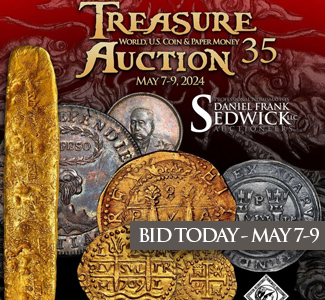By Shaun Pearce – Jollys Jewellers….
Coin collecting is a fascinating hobby, and even a potentially profitable one as coins can appreciate in value. However, when it comes to rare historic coinage, it is a hobby that can be very much complicated by the various cultural preservation laws in place throughout Europe.
What Laws Affect the Coin Collector?
While some of the laws in question are EU legislation, and are therefore uniform across much of the continent, cultural preservation laws can vary a great deal from country to country.
This makes it hard to go into specifics, but some of the most common and relevant laws are:
• Excavation Laws: Many historic coins are uncovered as a result of specific efforts, whether by professionals or amateurs. However, in some countries all such activities – including amateur metal detecting – are classed as full-on archaeological excavations and require a license. This decreases the number of coins being uncovered and entering the market, and some coins enter the market after being uncovered in violation of these laws.
• Site Preservation Laws: The impact of these laws is much the same as that of excavation law. Countries have different interpretations of what constitutes an historic site, and of how freely an item can be removed from an historic site or from its original context at all.
• Treasure Laws: For the most part, these laws only affect very rare and/or valuable coins, but the definition stretches further in some places than others. Items classed as treasure – usually those containing a certain amount of precious metal – may face restrictions on sale or have to be handed straight to a museum in exchange for compensation upon recovery.
Why Are These Laws in Place?
Some consider these laws somewhat draconian – an attempt to restrict or forbid the sale of items to what should be legitimate private collectors. In many places, the laws effectively restrict the supply of historic coins which are not even especially rare.
However, it is not just the items themselves that need protecting but the information they can provide to archaeologists. Even fairly common finds can tell professional academics something important and previously unknown about a given site, but this is lost if the coins are secretly and illegally taken from their proper location and context.
What Do These Laws Mean for Coin Collectors?
But what do these laws mean, in real terms, for collectors? Well aside from restricting the legitimate supply of certain coins, this question is closely tied to that of what the laws mean for dealers.
In order to help enforce these laws and place barriers in the way of those who would sell coins of questionable provenance, dealers are often required to carry out a degree of due diligence to ensure the coins they sell have entered the market through legitimate channels. The exact extent of this varies according to the law in the dealer’s location and a given coin’s place of origin. Some choose to carry out more due diligence than is strictly required.
Collectors who wish to avoid falling afoul of the law or supporting the illegal acquisition and resale of coins should buy from legitimate dealers who carry out such due diligence in full.
That way, they know that their coins are not only in line with the law, and have not been robbed of any potential significance as pieces of history.
